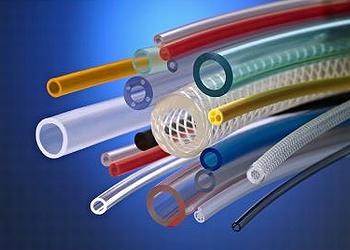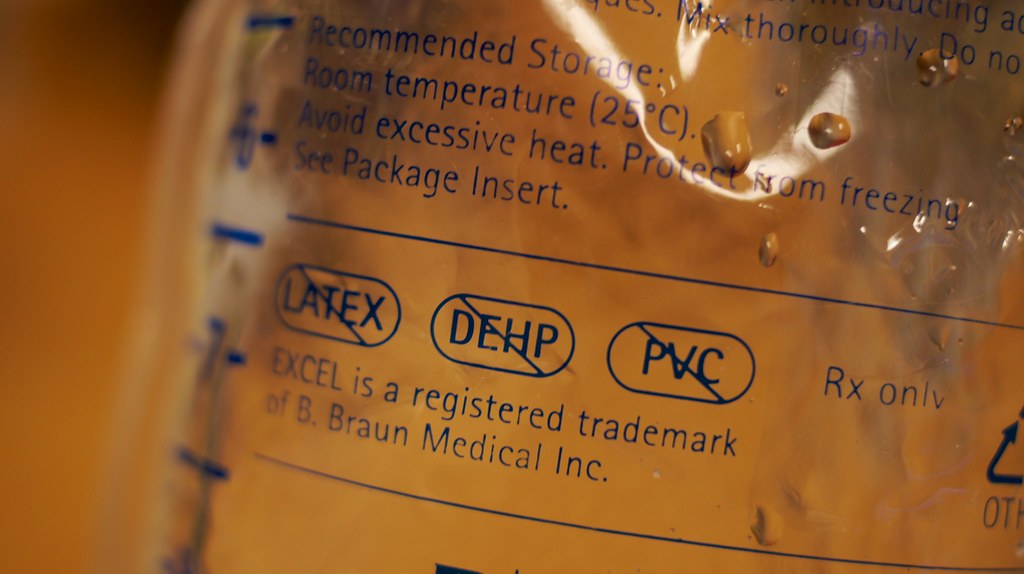一篇刊登於《毒理學科學》期刊的新研究發現,許多塑膠和個人護理產品中的鄰苯二甲酸酯,可能會降低雌性小鼠的生育能力。鄰苯二甲酸酯是一種塑化劑,添加到塑膠中可增加其柔韌度、透明度、耐久性和使用壽命,主要用於軟化聚氯乙烯(PVC)。
美國伊利諾大學的研究人員發現,給予雌性小鼠口服劑量的鄰苯二甲酸酯「DiNP」,十天就會破壞其生殖週期,降低接下來9個月的懷孕能力。「DiNP」的正式名稱為鄰苯二甲酸二異壬酯,用於軟化乙烯基。
越來越多研究顯示,鄰苯二甲酸酯與囓齒類動物的各種生殖異常和其他健康問題有關。鄰苯二甲酸鹽存在於許多類型的消費品中,例如食品和飲料包裝、乙烯基地板、醫療器械和化妝品。
該研究中給予小鼠兩種鄰苯二甲酸鹽,DiNP和DEHP,經學界研究發現跟各種健康風險有關。
DEHP或「鄰苯二甲酸二(2-乙基己基)酯」是鄰苯二甲酸酯類中最常見的成員,是一種無色粘稠液體塑化劑,可溶於油,但不溶於水。過去幾年中,歐洲、美國、加拿大和日本的政府機構和專家小組審查了DEHP用於軟化PVC醫療器械的的安全性。
這些機構和專家小組都發現,某些醫療程序中的DEHP暴露,可能會對患者的健康構成威脅。在歐盟,DEHP被歸類為生殖毒物。伊利諾大學科學家弗洛斯(Jodi Flaws)2015年就曾發現,DEHP破壞了小鼠體內激素訊號傳遞以及卵巢的生長和功能。該研究發表在《毒理學和應用藥理學》期刊上。
不過,弗洛斯此次研究的共同作者、研究生蔣凱蒂(Katie Chiang,暫譯)表示,過去關於鄰苯二甲酸酯的大部分研究使用了非常高的劑量,不能反映真實世界的暴露水平以及對女性生殖的潛在影響。
為了研究這些鄰苯二甲酸酯對女性生育能力的影響,研究人員以玉米油溶液餵食雌性小鼠,溶液中含有環境臨界濃度(environmentally relevant concentrations)的DEHP或DiNP,濃度範圍在20微克至200毫克/千克體重之間。
蔣凱蒂說,這樣的劑量與人們在日常生活和工作中可能接觸劑量相當。
十天給藥期結束後,將實驗組雌性小鼠和對照組與未經給藥處理的雄性伴侶配對兩次以進行育種。「給藥後3個月,接受最低劑量DEHP和DiNP治療的雌性小鼠中有三分之一在交配後無法受孕,而對照組中95%的雌性小鼠懷孕了,」蔣凱蒂說。
伊利諾大學比較生物科學教授弗洛斯說:「真正令人擔憂的是,這些雌性小鼠長期接觸到這些化學物質後,生育能力就會受損。」

與弗洛斯2015年的研究一樣,研究結果顯示類固醇激素的產生和訊息傳遞被破壞了。
給藥後3個月和9個月,服用DiNP的雌性小鼠動情週期與對照組不同。
在十天給藥期後立即檢查小鼠,研究人員發現,實驗組子宮的重量低於對照組,其生育模式也不同。然而,三個月和九個月的間隔內沒有這種差異。
給予最低劑量的DEHP或DiNP的雌性小鼠,與對照組相比,懷孕和生產幼鼠的數量減少。
蔣凱蒂和弗洛斯推測小鼠類固醇激素的失調使得子宮內膜不易讓胚胎著床。子宮內膜可以接受著床的時間很短,根據這項研究,雌性小鼠的性類固醇激素必須調節得很好才能發生。
研究人員表示,也可能是鄰苯二甲酸酯暴露讓雌性小鼠生殖期提早結束,降低了牠們懷孕的機會。其他研究發現,透過化妝品和個人護理產品接觸人體的鄰苯二甲酸酯會引發生殖衰老,導致女性早年進入更年期。
A phthalate found in many plastic and personal care products may decrease fertility in female mice, new research has found. Phthalates are used as plasticizers, substances added to plastics to increase their flexibility, transparency, durability, and longevity. They are used primarily to soften polyvinyl chloride (PVC).

Researchers at the University of Illinois found that giving female mice oral doses of the phthalate DiNP for 10 days disrupted their reproductive cycles, decreasing their ability to become pregnant for up to nine months afterward.
DINP, formally known as Diisononyl phthalate, is used to soften vinyl.
The findings, reported recently in the journal “Toxicological Sciences,” add to a growing body of research that links phthalates, also called plasticizers, with various reproductive abnormalities and other health problems in rodents.
Phthalates are found in many types of consumer goods, such as food and beverage packaging, vinyl flooring, medical devices and cosmetics.
Research studies have reported a variety of health risks associated with the phthalates that the mice in the study consumed, DiNP and DEHP.
DEHP, or di(2-ethylhexyl)phthalate, is the most common member of the class of phthalates. Used as a plasticizer, this colorless viscous liquid is soluble in oil, but not in water.
In the last few years, government agencies and expert panels in Europe, the US, Canada, and Japan have reviewed the safety of DEHP, used to soften PVC medical devices. Each of these agencies and expert panels has found that DEHP exposure from some medical procedures may pose a risk to patients’ health.
In the EU, DEHP is classified as a reproductive toxicant.
The studies on these phthalates include a 2015 study in mice by University of Illinois scientist Jodi Flaws’ research group, which found that DEHP disrupted hormone signaling and the growth and functioning of the ovaries. That study was published in the journal “Toxicology and Applied Pharmacology.”
However, much of the previous research on phthalates used very high dosages that don’t reflect real-world exposure levels and the potential effects on female reproduction, said graduate student Katie Chiang, a co-author of the current study with Flaws.
To investigate these phthalates’ effects on female fertility, female mice were fed corn oil solutions containing environmentally relevant concentrations of DEHP or DiNP ranging from 20 micrograms to 200 milligrams per kilogram of body weight.
Such doses are comparable to the levels of exposure that people may experience during their daily living and work activities, Chiang said.
After the 10-day dosing period ended, the phthalate-treated female mice and their counterparts in the control group were paired with untreated male partners twice for breeding.
“At three months post-dosing, a third of the females that were treated with the lowest doses of DEHP and DiNP were unable to conceive after mating, while 95 percent of the females in the control group became pregnant,” Chiang said.
“The thing that was really concerning was that these females’ fertility was impaired long after their exposure to the chemicals stopped,” said Flaws, a professor of comparative biosciences at University of Illinois.
As in Flaws’ 2015 study, the findings suggested that steroid hormone production and signaling were disrupted. At three months and nine months post-dosing, the DiNP-treated females’ estrous cycles differed from those of the control group.
Examining the mice immediately after the 10-day dosing period, the researchers found that the treated females’ uteruses weighed less than those of the females in the control group, and their fertility patterns were different, too.
However, they found no such differences at the three-month and nine-month intervals.
Among the females treated with the lowest doses of DEHP or DiNP, there was a reduction in the number that became pregnant and produced pups compared with the control group.
Chiang and Flaws hypothesized that dysregulation of the mice’s steroidal hormones made their uterine linings less receptive to embryo implantation. There’s a narrow window of time when the endometrial lining of the uterus is receptive to implantation and a female’s sex steroid hormones must be well regulated for it to occur, according to the study.
Or, perhaps phthalate exposure accelerated the end of the female mice’s reproductive lifespans, reducing their chances of becoming pregnant, the researchers said. Other studies have reported that phthalate exposure in humans through cosmetics and personal care products can trigger reproductive aging, causing women to enter menopause several years early.
※ 全文及圖片詳見:ENS





